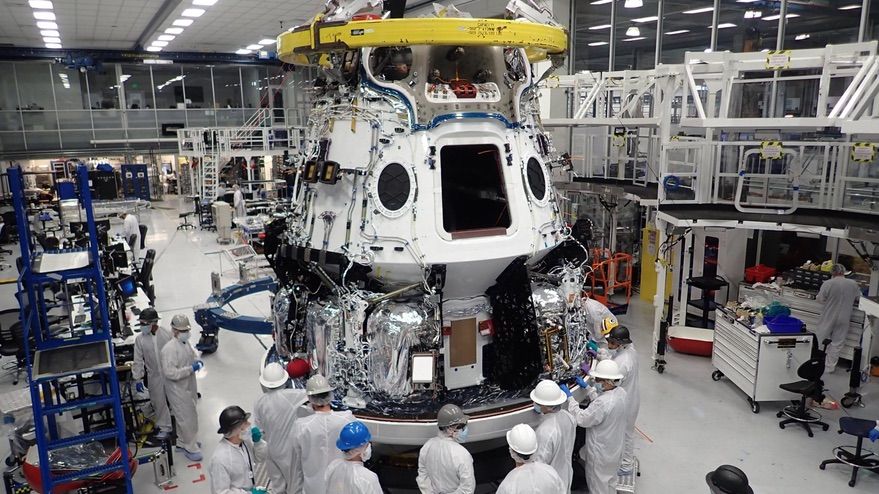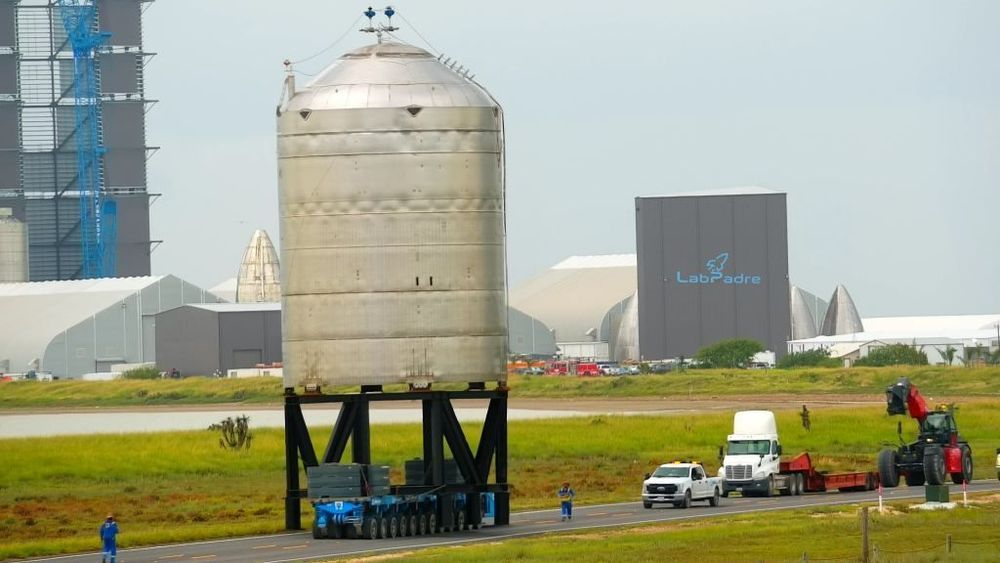Researchers have shown how to effectively transform one material into another using a finely shaped laser pulse.



A new bipartisan #congressionalreport calls for the #DefenseDepartment to get a lot more serious about the race to acquire #artificialintelligence and #autonomouscapabilities, modeling efforts to become dominant in these spheres after the “Manhattan Project” initiative to test and develop nuclear weapons in the 1940s.
On Tuesday, the House Armed Services Committee released the results of a yearlong review, co-led by Reps. Seth Moulton, D-Mass., and Jim Banks, R-Ind., aimed at assessing #U.S. #militarycapabilities and preparedness to meet current threats. The 87-page #Future of Defense Task Force Report contains some expected findings — #China and #Russia are identified as the top security threats to the U.S. and modernization is described as an urgent need — but there are surprising points of emphasis.
A bipartisan congressional report calls for the DoD to get more serious about the race to acquire artificial intelligence and autonomous capabilities, modeling efforts to become dominant in these spheres after the “Manhattan Project” initiative to test and develop nuclear weapons in the 1940s.

The future of Transportation Earth 2 Eath suborbital crafts.
SpaceX also has big ambitions for Starship to send passengers around the world.
Subscribe and click the notification bell for more.
Support Cindy on Patreon ► https://www.patreon.com/Newsthink
Merch ► https://teespring.com/stores/newsthink
Thank you to my Patrons, including: Ron Studd, David Dales, Bruce Hlava, Ronil Patel.
Have a video idea? Click the link below:
https://forms.gle/Qf8aNoeZPjACm3gbA
Connect with Cindy

Gryphon provides digital engineering, analytics, cyber and cloud solutions to U.S. security organizations. It was awarded a $14million DARPA task order to support the development and demonstration of an uranium-based Nuclear Thermal Propulsion (NTP) System.
The system is a part of the Demonstration Rocket for Agile Cislunar Operations (DRACO) program and will enable the U.S. military to operate spacecraft in cislunar space, Gryphon said. The cislunar space is the region outside the Earth’s atmosphere and just beyond the Moon’s orbit.
“A successfully demonstrated NTP system will provide a leap-ahead in space propulsion capability, allowing agile and rapid transit over vast distances as compared to present propulsion approaches,” said Gryphon’s Chief Engineer Dr. Tabitha Dodson.
“Gryphon is committed to providing high-end technical solutions to our nation’s most critical national security challenges,” said P.J. Braden, CEO of Gryphon. “We are proud to support DRACO and the development and demonstration of NTP, a significant technological advancement in efforts to achieve cislunar space awareness.”
Berlin, 30 September 2020. — The U.S. Defense Advanced Research Projects Agency (DARPA) tasked DC-based Gryphon Technologies to develop a nuclear thermal propulsion system, the firm announced yesterday.

India is not proposing the same open-access terms for articles that its researchers publish. Instead, the researchers advising the government want authors to archive their accepted manuscripts in public online repositories. This is often described as ‘green’ open access, which differs from the ‘gold’ route of publishing in open-access journals.
Researchers will also recommend an open-access policy that promotes research being shared in online repositories.

Summary: Novel technology allows researchers to understand how a fruit fly’s brain processes color.
Source: University of Minnesota
Through the development of new technology, University of Minnesota researchers have developed a method that allows scientists to understand how a fruit fly’s brain responds to seeing color. Prior to this, being able to determine how a brain responds to color was limited to humans and animals with slower visual systems. A fruit fly, when compared to a human, has a visual system that is five times faster. Some predatory insects see ten times faster than humans.

SpaceX has a busy schedule of Dragon missions carrying cargo and crew to the ISS through next year, with some use of reused spacecraft.
WASHINGTON — SpaceX is preparing for a busy schedule of Dragon missions carrying cargo and crew to the International Space Station through next year, a manifest that will make at least some use of reused spacecraft.
At a Sept. 29 NASA briefing, Benji Reed, senior director of human spaceflight programs at SpaceX, said that schedule of missions means there will be at least one Dragon spacecraft, and sometimes two, docked to the station continuously through the end of 2021 after the launch of the Crew-1 Crew Dragon mission, currently scheduled for Oct. 31.
“This really is a new era for us as a company at SpaceX, and also for commercial space in general,” he said.

SpaceX just passed another milestone with the SN7.1 test tank, which they tested to failure by pressurizing it until it exploded.
They say that failure can be the greatest teacher of all, and it’s easy to see why. Those who learn from their mistakes become informed as to what can go wrong, and will develop the necessary strategies to avoid making the same mistake in the future. This philosophy is also at the core of SpaceX rapid-prototyping process, where full-scale models of the Starship and its components are tested to the point of failure.
At Boca Chica, SpaceX ground crews continue to follow this process in order to get the Starship ready for orbital testing. The latest piece of hardware that was tested to failure was the SN7.1 Test Tank, which was pressurized until it exploded. This test took place a week ago (on the evening of September 23rd) shortly after the SN5 and SN6 prototypes both completed a 150 m (~500 ft) hop test.
News and footage of the pressure test were shared via Twitter by Chris Bergin, the Managing Editor of NASA Spaceflight. The test, which began shortly before 10:30 PM local time (08:30 PM PDT; 11:30 PM EDT), was recorded on-site by Mary McConnahay (@BocaChicaGal) and broadcast via live stream on the NASA Spaceflight Youtube channel.
Does phosphine and other signs indicate life in the clouds of Venus? If so how did it get there? Did life originate on Venus? Did Earth life originate on Venus? What is Panspermia?
You can support Galactic Gregs by supporting the sister channel Green Gregs by clicking the links below:
See the Special Deals at My Patriot Supply: www.PrepWithGreg.com
For gardening in your Lunar habitat Galactic Gregs has teamed up with True Leaf Market to bring you a great selection of seed for your planting. Check it out: http://www.pntrac.com/t/TUJGRklGSkJGTU1IS0hCRkpIRk1K